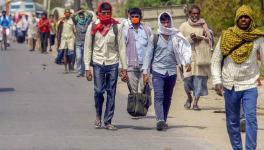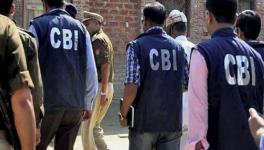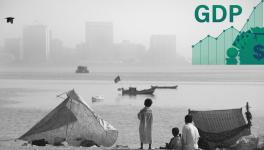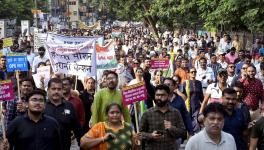Haitian Police and Military Agree to Find Solutions After Clashes on Sunday
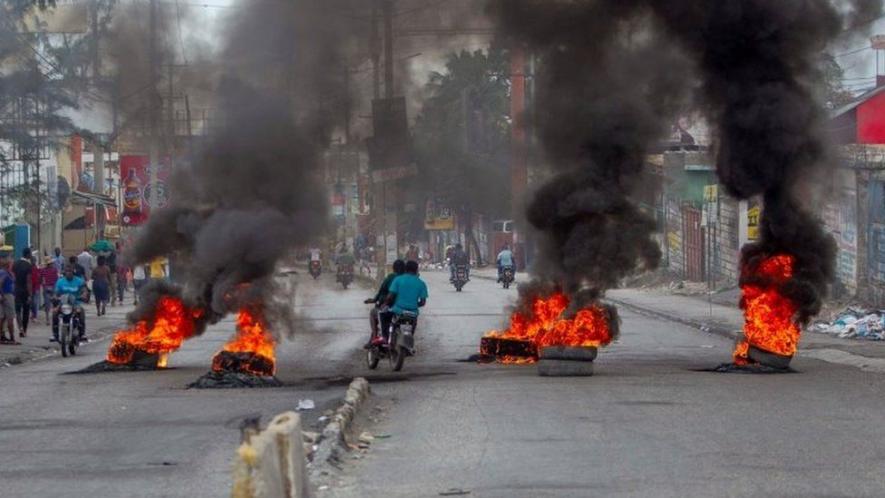
The protesters scattered bricks and burning tyres on key roads in Port-au-Prince on February 24.
On February 25, the commanders of the Haitian Army and Police agreed to find solutions to the security crisis suffered by the country after the bloody clashes between the two security forces on February 23 in the capital Port-au-Prince. The army chief, General Jodel Lesage, and the police director, Normil Rameu, also regretted the deaths of a policeman and a soldier in the shooting.
An official statement by the Ministry of Communication confirmed this, stating that the two forces will work together to protect the democratic achievements and fight the armed gangs to restore a stable and peaceful environment in the country.
On February 23, Haitian police officials demonstrated in the center of the capital demanding an increase in salary, better working conditions and the creation of a union to guarantee their rights against police hierarchy and ensure transparency while negotiating with their superiors. During the protest, a group of policemen dressed as civilians and wearing hoods attacked the army headquarters, located in the central square Champ de Mars, near the Presidential Palace. This led to an exchange of firing between the two armed forces. The shooting lasted for more than six hours and in the conflict, a policeman and a soldier died and a dozen people were injured.
The next day, on February 24, police officials continued with their measure of protest and held several demonstrations in different parts of Port-au-Prince. The protesters scattered bricks and burning tyres on the streets. Throughout the day, almost all streets were deserted, shops were closed and public transport completely paralyzed. Until late evening on February 26, barricades were erected in the main areas of the city on the State’s order by the army.
The police received the support of common citizens, who have been mobilizing against the US-backed President Jovenel Moïse, demanding his resignation, since July 2018. Moïse usurped power in 2016, through elections that were widely recognized as fraudulent.
Justice Minister, Jean Roudy Aly, deemed the confrontation between police and military as “attempted coup against the president of the Republic.”
The Haitian government described the incidents as “a war situation” and announced to cancel a local carnival scheduled to begin on February 25 in order “to avoid a bloodbath.”
Police have been carrying out several protests since the beginning of the year to demand salary increases, improvements in working conditions and the right to unionization. However, until now, their demands have been largely ignored by the government. In response to the government indifference, police officers decided to take drastic measures to raise awareness to their demands.
Since July 2018, Haiti has been experiencing a major socio-economic and political crisis, due to the economic crisis in the country and accusations of corruption involving its president and several other top-ranked government officials.
Haiti is the poorest and most unequal country Caribbean country in the Americas. Around 85% of its population lives in abject poverty amid rampant inflation and accelerated devaluation of the national currency. Moïse’s neoliberal policies, adopted due to pressure from the International Monetary Fund (IMF), and harsh international sanctions have added to the misery of the impoverished sections of society.
Moïse, 15 ministers and senior officials of the former president Michel Martelly’s administration have been accused of embezzlement of around USD 3.8 billion from the Petrocaribe funds, a program to finance various public and social development schemes and provide affordable crude oil, offered to Haiti by the Bolivarian Republic of Venezuela.
Virtually all sectors of the nation demand Moïse’s resignation. In November 2019, all opposition coalitions and the Patriotic Forum, a coalition of more than 60 urban and rural social movements, trade unions and left-wing political parties, reached an agreement on who would occupy the presidency and vice-presidency of the country in case of a possible political transition.
Get the latest reports & analysis with people's perspective on Protests, movements & deep analytical videos, discussions of the current affairs in your Telegram app. Subscribe to NewsClick's Telegram channel & get Real-Time updates on stories, as they get published on our website.













